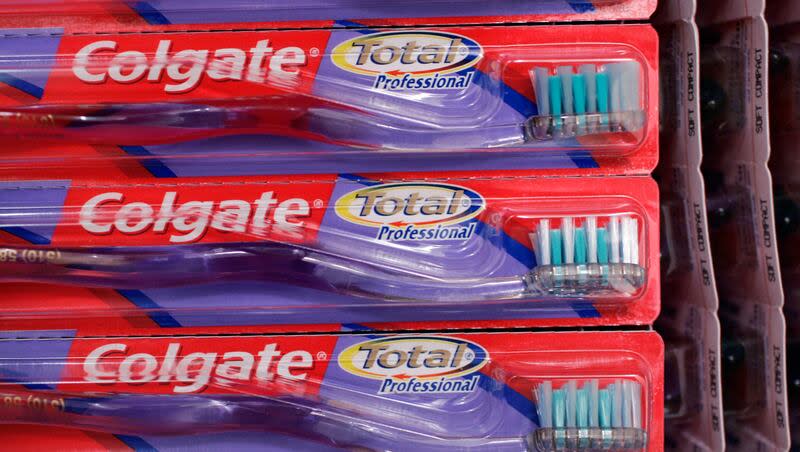Prefer brushing your teeth after meals? It may be best to wait

After we eat or drink, our saliva breaks down food. When saliva breaks down sugars and carbs, it creates an acidic byproduct that lowers the pH of the saliva, per Colgate.
The potential hydrogen, or pH, scale ranks the level of acidic and basic compounds in an object. Zero is the most acidic, seven is neutral and 14 is the most basic, or alkaline. Our mouth should remain at a neutral pH, according to Fortune.
Because if this, you might not want to brush your teeth right after you eat. Here’s what you should know.
Should you brush your teeth immediately after eating?
When your oral pH drops below a 5.5, your enamel — the protective outer covering of a tooth — starts to dissolve, according to Air Force Medical Service.
Jason Auerback, doctor of dental surgery, told Fortune, “Sometimes, after an acidic meal, brushing the teeth is not necessarily the best thing because the enamel is a little bit softer, and you can do some damage.”
Waiting 30 minutes to brush your teeth after eating will help the weakened tooth enamel build itself back up, per Columbia University Irving Medical Center.
Are your teeth enamel important?
According to Cleveland Clinic, protecting your enamel will prevent the inner layers of your tooth from:
Cavities or other decay.
Erosion.
Infections.
Sensitivity.
What is the best way to clean your mouth after eating?
Instead of brushing your teeth, rinsing with a neutral water right after you eat will help get rid of acidic material and debris, per Fortune.
“The best time to rinse with water is immediately after eating, but certainly sugary or acidic foods are most problematic,” Auerbach said to Fortune.
Per Colgate, rinsing with mouthwash is another option to help rebalance your pH.
How often should you brush your teeth?
According to Mayo Clinic, you should brush your teeth twice a day for at least two minutes each time. You should also:
Floss at least once a day.
Drink a lot of water, especially if there is fluoride in it.
Limit sugary foods or drinks.
Use mouthwash after brushing and flossing.
Get a new toothbrush every few months.
Do not smoke.
See a dentist regularly.
Anne Clemons, a dentist, told Cleveland Clinic, “You can brush more than twice a day if you choose — but do it gently.”
What is the proper way to brush your teeth?
Per Healthline, proper brushing is gentle and follows the steps below:
Dampen your toothbrush with water.
Apply a pea-sized amount of toothpaste onto toothbrush.
Hold the brush at a 45-degree angle and insert it into the mouth.
Use gentle, short strokes on the outer surfaces of your teeth.
Ensure to reach the back molars and upper chewing areas while brushing.
Rotate the brush to clean the inside surfaces of your front teeth.
Brush your tongue to remove bacteria and plaque.
Spit out the toothpaste residue.
Rinse your mouth with cold water.
What kind of toothbrush should you use?
The American Dental Association suggest picking out toothbrushes that have the ADA seal of acceptance. This seal shows that the toothbrush was evaluated and is considered safe and effective to use.
Soft bristles are universally recommended for toothbrushes, regardless of style. Dentists may suggest electric toothbrushes for those prone to brushing too hard or with specific dental issues like braces.
Many electric toothbrush models offer soft bristle heads for gentle yet effective cleaning, according to Mid Cities Dental.

